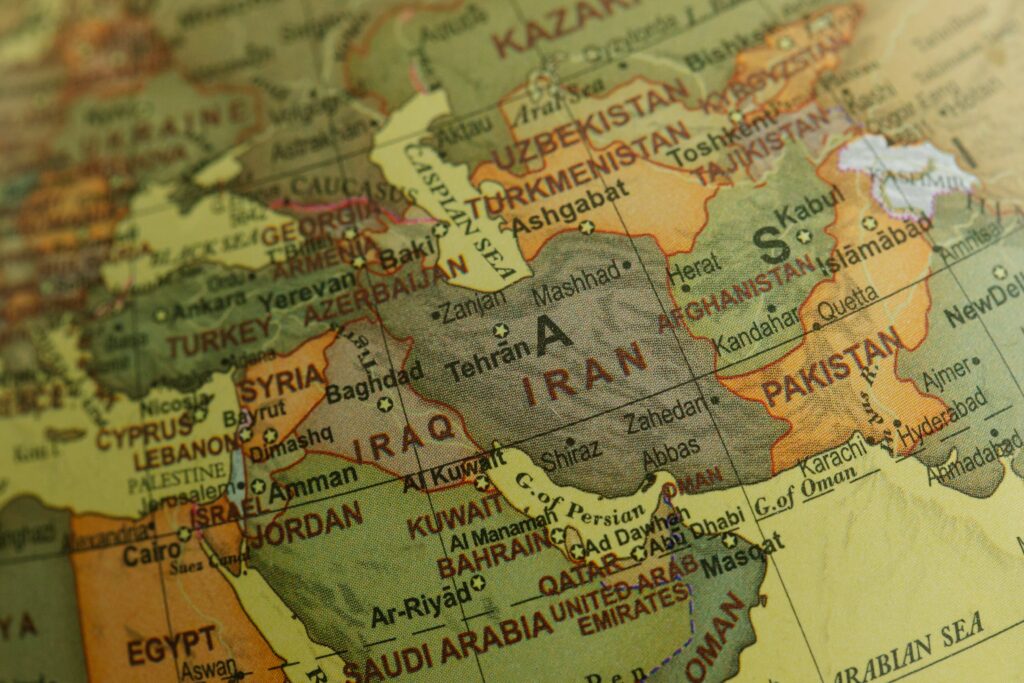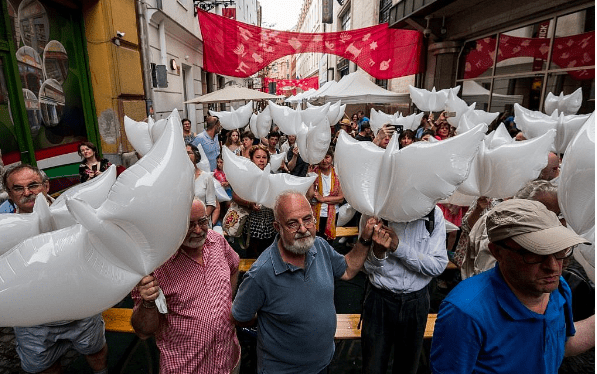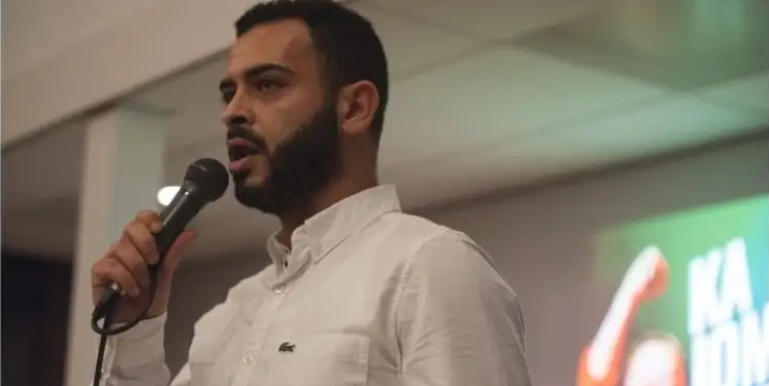I was grateful for the White House invitation to witness the historic opening of the US Embassy in Jerusalem. Truth be told, I believe that every Jew in attendance was thinking of a father, a grandmother, a sibling wiped out in the Nazi Holocaust or any of the millions of Jews, who over two millennia were scattered to the four winds of exile—and on whose shoulders we stand today. For it was they, from Baghdad to Moscow, from New Delhi to New York, from Warsaw to Waukegan who down through the centuries–against all odds– dared to dream that someday, somehow, their offspring would return home to Zion, to Jerusalem.
From abandonment to validation
For over 1,900 years Jews in exile lived with the bitter bile of abandonment, bereft of rights, subject to the whims of rulers, demonized by religious authorities and derided by neighbors for being different.
The ultimate abandonment came with the Nazi Holocaust in the 1940s with the destruction of European Jewry. In fact, it was the West’s abandonment of Jews in the 1930s that sealed their fate long before the Nazis mass-murdered 6 million of our people—one third of world Jewry.
Validation
So how was possible that less than three years after Auschwitz, that the Jewish nation was (re)born?
It was in large measure because of one man who bucked the advice of diplomats and pundits to support a Jewish state— President Harry S. Truman.
Watching the video in Jerusalem of President Donald Trump’s speech from the White House, I kept thinking about the similar challenges both presidents faced when it came to U.S. policy in The Holy Land.
Truman, who never expected to be the vice president in 1944, let alone could have imagined that he would soon be president of the United States, had zero experience in foreign policy.
Once he became president he would rely heavily on Secretary of State George Marshall, a World War II hero who would go on to win the 1953 Nobel Peace Prize for The Marshall Plan that rebuilt a Europe shattered by war.
Marshall was bitterly opposed to a Jewish state. He was more concerned about having an uninterrupted supply of Arab oil than a people devastated by war and was convinced that the Jews couldn’t withstand an Arab military onslaught.
Marshall’s opposition was buttressed by virtually the entire State Department. At one point Marshall even threatened Truman that he would oppose the president’s reelection.
No matter, “Give ‘em Hell Harry” — with a push from his Jewish buddy and partner Eddie Jacobson—decided to override the “experts” and actively support the Jewish people’s quest for freedom.
On November 29, 1947, he instructed the U.S. to vote for statehood at the United Nations. A few months later, Truman decided that the U.S. would be the first nation to recognize the State of Israel, just 11 minutes after David Ben-Gurion declared the Jewish State.
Through his actions Truman not only changed history, he validated a people who had been left for dead.
Today the Jewish state is alive– a vibrant democracy and a font of ingenuity and creativity. But it is a nation still under siege—threatened by over 100,000 Hezbollah and Hamas missiles, terror tunnels and Iranian nuclear-tinged saber rattling.
Israel also faces a relentless asymmetrical war of demonization and delegitimization. From U.N. resolutions to church groups to academic assaults to global boycotts to social media campaigns, Zionists are denounced as racists and Israelis as Nazis, latter-day colonialists, interlopers and even “fake” Jews.
Enter Donald Trump. With the stroke of a pen, he validated 3,500 years of Jewish history by opening the U.S. Embassy in Jerusalem, debunking the global smear campaign against the Jewish State.
His decision will also have an impact on Christian-Jewish relations. My grandparents fled Eastern Europe at the beginning of the 20th Century primarily because of theologically-fueled hatred from Christian churches and clergy.
They would have been shocked to see the hundreds of Christian Zionists who sat shoulder to shoulder with American and Israeli Jews at the embassy opening on Monday. And they would have been amazed to learn it was American Christians, led by a few million Evangelicals, who consistently reminded President Trump about candidate Trump’s promise to do right by Israel.
Unlike his predecessors who never lived up to their campaign promises — Trump just did. His place in history and in the annals of the people of Israel are secured forever.
The Article was published on Fox News













